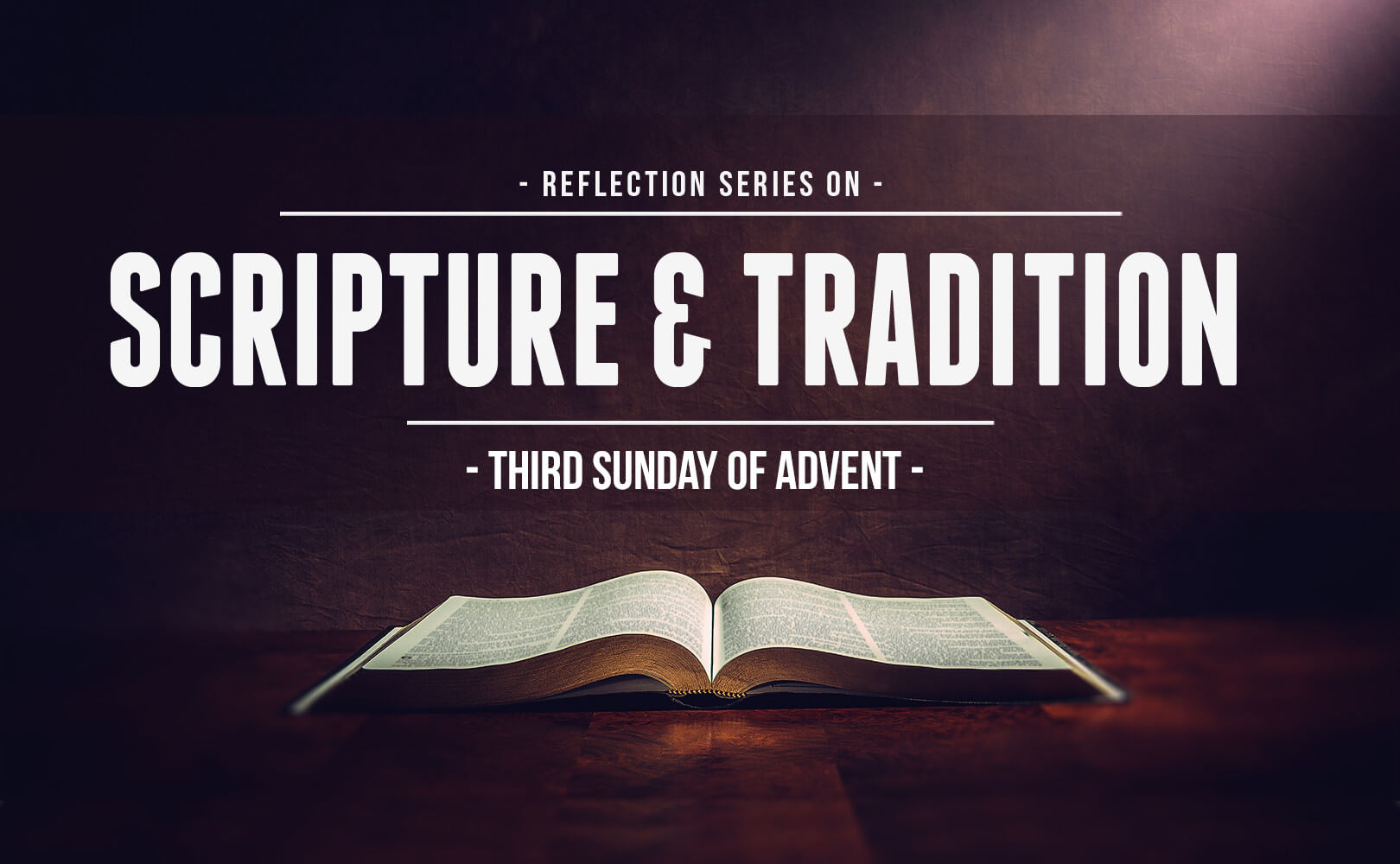Epistle: Philippians 4:4-7
Gospel: John 1:19-28
Incline Thine ear to our prayers we beseech Thee, O Lord; and enlighten the darkness of our minds by the grace of Thy visitation.
– From the Collect for the Third Sunday of Advent
This Sunday, the Third Sunday of Advent, is “Gaudete Sunday.” Taking its name from the Introit for the Mass, which begins, Gaudate in Dómino semper: íterum dico, gaudéte—“Rejoice in the Lord always: again I say, rejoice”—this is a day for rejoicing!
The Gaudete phrase from the Introit is actually a direct quote from the Epistle for the Mass, which comes from St. Paul’s letter to the Philippians. (Ironically, even though the new Lectionary is supposed to be more Scriptural, this Epistle is only read in Year C in the Ordinary Form.) What does the Apostle mean when he tells the Philippians to “rejoice in the Lord always”? St. Thomas Aquinas explains:
When he says, rejoice in the Lord always, he urges them to make more progress in what is better:
first, he prepares their mind to make more progress in what is better;
second, he arranges their activity, at “for the rest, brethren” (4:8).
In regard to the first he prepares their mind in regard to three things:
first, in regard to spiritual joy;
second, in regard to spiritual rest, at “have no anxiety” (4:6);
third, in regard to peace, at “and may the peace of God” (4:7).
In regard to the first:
first, he describes what our joy should be;
second, he discloses the cause of joy, at “the Lord is at hand” (4:5).
Commentary on the Philippians 152
“The Lord is at hand”—this is the reason that we rejoice on Gaudete Sunday, because the Lord is soon coming at Christmas.
The Season of Advent was established by the Church over a millennium ago as a penitential season. Similar to Lent, which is a penitential season preparing for Easter, Advent is a time of preparation for Christmas. And in the spiritual life, preparation always means penance. This connection is personified in the figure of St. John the Baptist, who looms large in Sunday’s Gospel. The Baptist lived a life of severe penance, for his one duty was to “make straight the way of the Lord”—to prepare the world for the coming of the Messiah.
On Gaudete Sunday, however, we take a brief respite from our penance. Gaudete Sunday thus corresponds to Laetare Sunday in Lent: we see rose-colored vestments and flowers on the altar. This helps to remind us of the reason for our penances: the joy of the coming of the Lord. This Sunday is also an acknowledgement of our human weakness. We cannot sustain our penances for a long time without being overwhelmed by them. We need this break in order to recharge and refocus our efforts. Thus will our joy be fulfilled at Christmas!
But even in our rejoicing we do not forget our own sinfulness. As St. John Chrysostom preached, “This rejoicing is not separable from grief, for indeed it is rather deeply connected with grief. The one who grieves for this own wrongdoing and confesses it is joyful. Alternatively it is possible to grieve for one’s own sins but rejoice in Christ…On this account [St. Paul] says Rejoice in the Lord” (Homily on Philippians 15.4-6). In other words, unlike modern man who loves to rejoice in his own perceived greatness, we rejoice exclusively in the Lord, for we know it is only in Him that any true joy is possible.
Rejoice!


